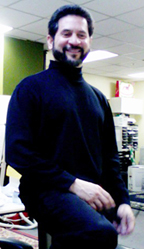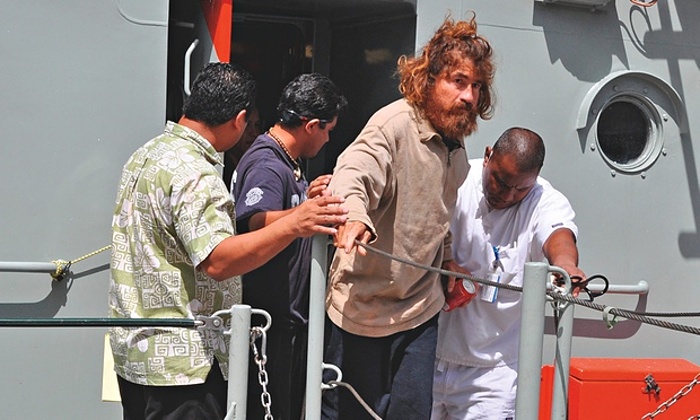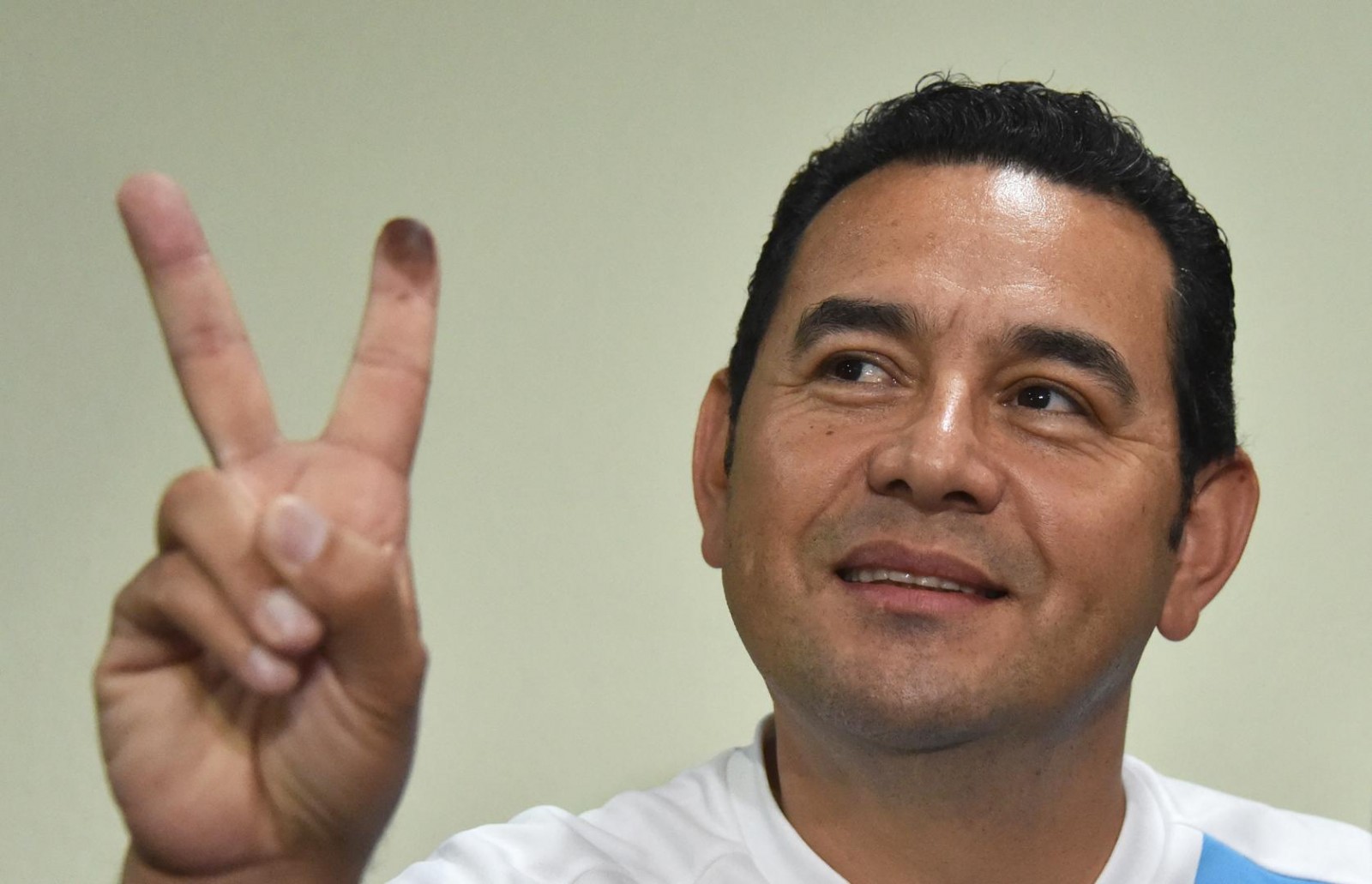NOTE FROM THE EDITOR:
Dear readers, Did you know that we are actually ruled by corporations, and that our country is a corporation, and that its officers (police, army, courts, etc) are actually agents of a corporation that are there to serve you or me?
In this following article, written by Richard Heinberg, sometime ago, you will discover a piece of history that probably you have never been exposed to during your lifetime and education. Due to the length of this piece, El Reportero will publish it in parts. THIS IS PART 1 OF A SERIES.
by Richard Heinberg
The corporation was invented early in the colonial era as a grant of privilege extended by the Crown to a group of investors, usually to finance a trade expedition. The corporation limited the liability of investors to the amount of their investment–a right not held by ordinary citizens. Corporate charters set out the specific rights and obligations of the individual corporation, including the amount to be paid to the Crown in return for the privilege granted.
Thus were born the East India Company, which led the British colonization of India, and Hudson’s Bay Company, which accomplished the same purpose in Canada. Almost from the beginning, Britain deployed state military power to further corporate interests–a practice that has continued to the present. Also from the outset, corporations began pressuring government to expand corporate rights and to limit corporate responsibilities.
The corporation was a legal invention–a socio-economic mechanism for concentrating and deploying human and economic power. The purpose of the corporation was and is to generate profits for its investors. As an entity, it has no other purpose; it acknowledges no higher value.
Many people understood early on that since corporations do not serve society as a whole, but only their investors, there is therefore always a danger that the interests of corporations and those of the general populace will come into conflict. Indeed, the United States was born of a revolution not just against the British monarchy but against the power of corporations. Many of the American colonies had been chartered as corporations (the Virginia Company, the Carolina Company, the Maryland Company, etc.) and were granted monopoly power over lands and industries considered crucial to the interests of the Crown.
Much of the literature of the revolutionaries was filled with denunciations of the “long train of abuses” of the Crown and its instruments of dominance, the corporations. As the yoke of the Crown corporations was being thrown off, Thomas Jefferson railed against “the general prey of the rich on the poor”. Later, he warned the new nation against the creation of “immortal persons” in the form of corporations. The American revolutionaries resolved that the authority to charter corporations should lie not with governors, judges or generals, but only with elected legislatures.
At first, such charters as were granted were for a fixed time, and legislatures spelled out the rules each business should follow. Profit-making corporations were chartered to build turnpikes, canals and bridges, to operate banks and to engage in industrial manufacture. Some citizens argued against even these few, limited charters, on the grounds that no business should be granted special privileges and that owners should not be allowed to hide behind legal shields. Thus the requests for many charters were denied, and existing charters were often revoked. Banks were kept on a short leash, and (in most states) investors were held liable for the debts and harms caused by their corporations.
All of this began to change in the mid-19th century. According to Richard Grossman and Frank Adams in Taking Care of Business: “Corporations were abusing their charters to become conglomerates and trusts. They were converting the nation’s treasures into private fortunes, creating factory systems and company towns. Political power began flowing to absentee owners intent upon dominating people and nature.”
Grossman and Adams note that: “In factory towns, corporations set wages, hours, production processes and machine speeds. They kept blacklists of labor organizers and workers who spoke up for their rights. Corporate officials forced employees to accept humiliating conditions, while the corporations agreed to nothing.”
The authors quote Julianna, a Lowell, Massachusetts, factory worker, who wrote: “Incarcerated within the walls of a factory, while as yet mere children, drilled there from five till seven o’clock, year after year.what, we would ask, are we to expect, the same system of labor prevailing, will be the mental and intellectual character of future generations.a race fit only for corporation tools and time-serving slaves?… Shall we not hear the response from every hill and vale: ‘Equal rights, or death to the corporations’?”
Industrialists and bankers hired private armies to keep workers in line, bought newspapers and (quoting Grossman and Adams again): “.painted politicians as villains and businessmen as heroes. Bribing state legislators, they then announced legislators were corrupt, that they used too much of the public’s resources and time to scrutinise every charter application and corporate operation. Corporate advocates campaigned to replace existing chartering laws with general incorporation laws that set up simple administrative procedures, claiming this would be more efficient. What they really wanted was the end of legislative authority over charters.”
During the Civil War, government spending brought corporations unprecedented wealth. “Corporate managers developed the techniques and the ability to organize production on an ever grander scale,” according to Grossman and Adams. “Many corporations used their wealth to take advantage of war and Reconstruction years to get the tariff, banking, railroad, labor, and public lands legislation they wanted.”
In 1886, the US Supreme Court declared that corporations were henceforth to be considered “persons” under the law, with all of the constitutional rights that designation implies.
The Fourteenth Amendment to the Constitution, passed to give former slaves equal rights, has been invoked approximately ten times more frequently on behalf of corporations than on behalf of African Americans. Likewise the First Amendment, guaranteeing free speech, has been invoked to guarantee corporations the “right” to influence the political process through campaign contributions, which the courts have equated with “speech.”
If corporations are “persons”, they are persons with qualities and powers that no flesh-and-blood human could ever possess–immortality, the ability to be in many places at once, and (increasingly) the ability to avoid liability. They are also “persons” with no sense of moral responsibility, since their only legal mandate is to produce profits for their investors.
Throughout the late 19th and early 20th centuries, corporations reshaped every aspect of life in America and much of the rest of the world. The factory system turned self-sufficient small farmers into wage-earners and transformed the family from an interdependent economic production unit to a consumption-oriented collection of individuals with separate jobs. Advertising turned productive citizens into “consumers”. Business leaders campaigned to create public schools to train children in factory-system obedience to schedules and in the performance of isolated, meaningless tasks. Meanwhile, corporations came to own and dominate sources of information and entertainment, and to control politicians and judges.
During two periods, corporations faced a challenge: the 1890s (a depression period when Populists demanded regulation of railroad rates, heavy taxation of land held only for speculation, and an increase in the money supply), and the 1930s (when a profound crisis of capitalism led hundreds of thousands of workers and armies of the unemployed to demand government regulation of the economy and to win a 40-hour week, a minimum-wage law, the right to organize, and the outlawing of child labor). But in both cases, corporate capitalism emerged intact.
In the words of historian Howard Zinn : “The rich still controlled the nation’s wealth, as well as its laws, courts, police, newspapers, churches, colleges. Enough help had been given to enough people to make Roosevelt a hero to millions, but the same system that had brought depression and crisis.remained.”
World War II, like previous wars, brought huge profits to corporations via government contracts. But following this war, military spending was institutionalized, ostensibly to fight the “Cold War”. Despite occasional regulatory setbacks, corporations seized ever more power, and increasingly transcended national boundaries, loyalties and sovereignties altogether.










